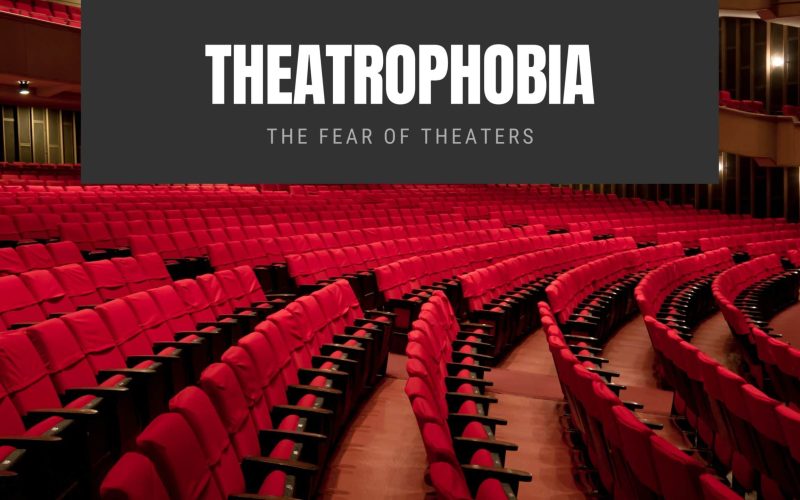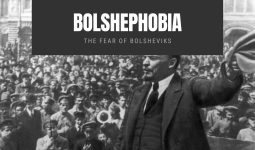Generally, theatre is a building, part of a place, an extension, or an open area to house dramatic presentations, motion pictures, or stage entertainment.
Over the years, people have often seen theatres as places for entertainment, information, or education.
Even though the Theatre entertains people, some people still develop a phobia of it; this phobia is called Theathrophobia (Fear of the Theatre).
What Is Theatrophobia?
Theatrophobia is the fear of Theatre. The word originates from the Greek word “Theatron,” which means (the place for seeing) and “Phobia” (fear).
Some professionals have defined Theatrophobia as an irrational fear of Theaters. People who have Theatrophobia find it extremely difficult to be around a theatre, let alone be in one.
Theotrophobia is said to stem from a mixture of various disorders, such as claustrophobia (fear of confined spaces) and Agoraphobia (fear of crowded places). Thus, one can see how other fears can actually create a different phobia entirely.
Aside from closely related phobias, there are other factors, too; these factors, which are genetic and environmental, can easily classify someone as having Theatrophobia.
Usually, people who have Theatrophobia consider themselves being in a large dark room filled with too many people.
The fact that the Theatre usually has a couple of distant existing exit doors further improves their phobia and could lead to them having a full-blown panic attack.
Causes of Theatrophobia
Generally, phobias arise from external factors (traumatic experience) and internal designs (heredity and genetics).
These phobias can be traced back to an event in one’s life. Some have known causes, while the origin of many is yet to be identified.
Same with Theatrophobia, many had linked its source to the assassination of Abraham Lincoln in late 1800, as he was shot in the back of his head in Ford’s Theater in Washington, D.C.
It is easy to see how people can easily get phobias from being around a theatre. The Theatre is seen as a leisure place where people go to have a fun time with family or friends; had become a place one could get shot while having this alone time with one’s self or with someone else. This could trigger Theatrophobia.
Getting murdered in a theatre is not the only thing that makes people develop Theatrophobia.
Some environmental and genetic makeup of an individual is said to have a considerable effect on them; these factors might result from a phobia for very crowded places, dark areas, or confined areas. It is very easy for people with the above phobias to develop Theatrophobia.
If someone were to belong to a family that has a history of phobia, it is quite easy for said individual to have Theatrophobia, e.g., you will find that it would be challenging for someone who witnessed the Lafayette shooting in 2015 ever to come close to a theatre, cause such event had triggered a phobia, that might be lying dormant, deep within their subconsciousness, or in their genetic make-up, another typical example could be the Aurora shooting in 2012, where a killer who had schizophrenia, opened fire at an audience watching a Batman movie.
Symptoms of Theatrophobia
Anyone suffering from Theatrophobic disorder usually experiences an exceptional level of anxiety; this anxiety often originates from either being in a theatre or being near a theatre.
This phobia can be a result of the fact that they could get shot at randomly by an unknown assailant, the mere thought of this, can trigger immense anxiety, increase in their heart rates , and could even lead to a panic attack.
Hence, they try their very best to avoid theatres. In addition to theatres, people show Theatrophobic symptoms in places that are closely related to a theatre.
Crowded places with dozens of people not known to them can disregard these symptoms, and areas that have huge TVs installed in them to enable people to view live sports games.
All these can cause people with Theatrophobia to start experiencing anxiety or some form of shakiness, so they try their hardest to avoid such places that remind them of the experiences they have had.
Some of the common symptoms of Theathrophobia are listed below:
- Anxiety when thinking of Theater
- Irrational fear for theatres
- Always avoid theatres or places with the same features as a theatre.
- Being unable to cope with the fear of everything that could go wrong in a theatre
- Intense anxiety when in a theatre
- Shakiness, Muscle tension, profuse sweats
- All phobias could lead to panic attacks, and Thatrophobia is not an exemption.
Treatments of Theatrophobia
Clinically, some articles seeTheatrophobia, as a common phobia, though there isn’t a specific treatment for it, regardless, countless ways or procedures have been claimed to treat this disorder.
Some of these include exposure therapy, cognitive behavioral therapy , DBT, and some psychiatric medications.
Medications
Taking anti-anxiety pills has been known to help reduce the intensity of some forms of Theatrophobia; the same goes for some antidepressant medications.
Though the medicine alone might not yield a long-lasting positive effect, Doctors have advised that it’s best taken with some form of therapy.
Exposure Therapy
Exposure therapy is a very common way of treating various forms of phobia.
Exposure therapy’s procedure is quite adequate, as people who have Theatrophobia are gradually faced with theatres.
Still, before they are exposed to the theatre, they are first made aware of it or made to imagine themselves in a theatre.
Many mental disorder professionals adopt this mode of treatment to help treat phobias and anxiety.
In the treatment of Theatrophobia, the doctor might use some mediums like pictures of various theatres; after some time, he might also have to introduce said patients to videos of people in a theatre.
This method is proposed to help disordered patients get over their fear of a particular thing, as the more they get exposed to what they are afraid of, the less scared they would be.
Cognitive Behavioral Therapy CBT
Like exposure therapy, CBT is also a conventional treatment for various disorders, which most times works for generalized anxiety disorder (GED) or obsessive-compulsive disorder (OCD).
Aside from these disorders, CBT is also said to be an excellent treatment for Theatrophobia. When a therapist asks questions like, why do you feel you will break down anytime you are close to a theatre?
Or why do you have an excessive urge to avoid theatres in general, and what makes you feel the way you think about theatres?
This is a form of CBT, as it helps the patient take a more pragmatic approach to thinking about their fear.
DBT for Theatrophobia
Another form of treatment for Theatrophobia is DBT; usually, it’s a treatment that’s meant for people with emotional regulation, i.e., used to treat people who have a borderline personality disorder .
Still, it has been seen as a great way of treating Theatrophobia due to the level of coping skills one is expected to gain from DBT group therapy.
This treatment can last from five months to six months and can have from two to several people; it all depends on how many join the group.
Some methods of DBT include;
- Half smiling, in theory, the patient is asked to think of what caused fear and anxiety while slightly raising the corners of their mouth; basically, the patient is asked to smile while thinking of theatres.
- Mindfulness meditation is also a form of DBT; it helps take the patients out of their comfort zone, bring them to a place where they feel less comfortable, and help them get through the discomfort.








